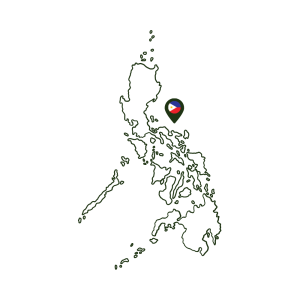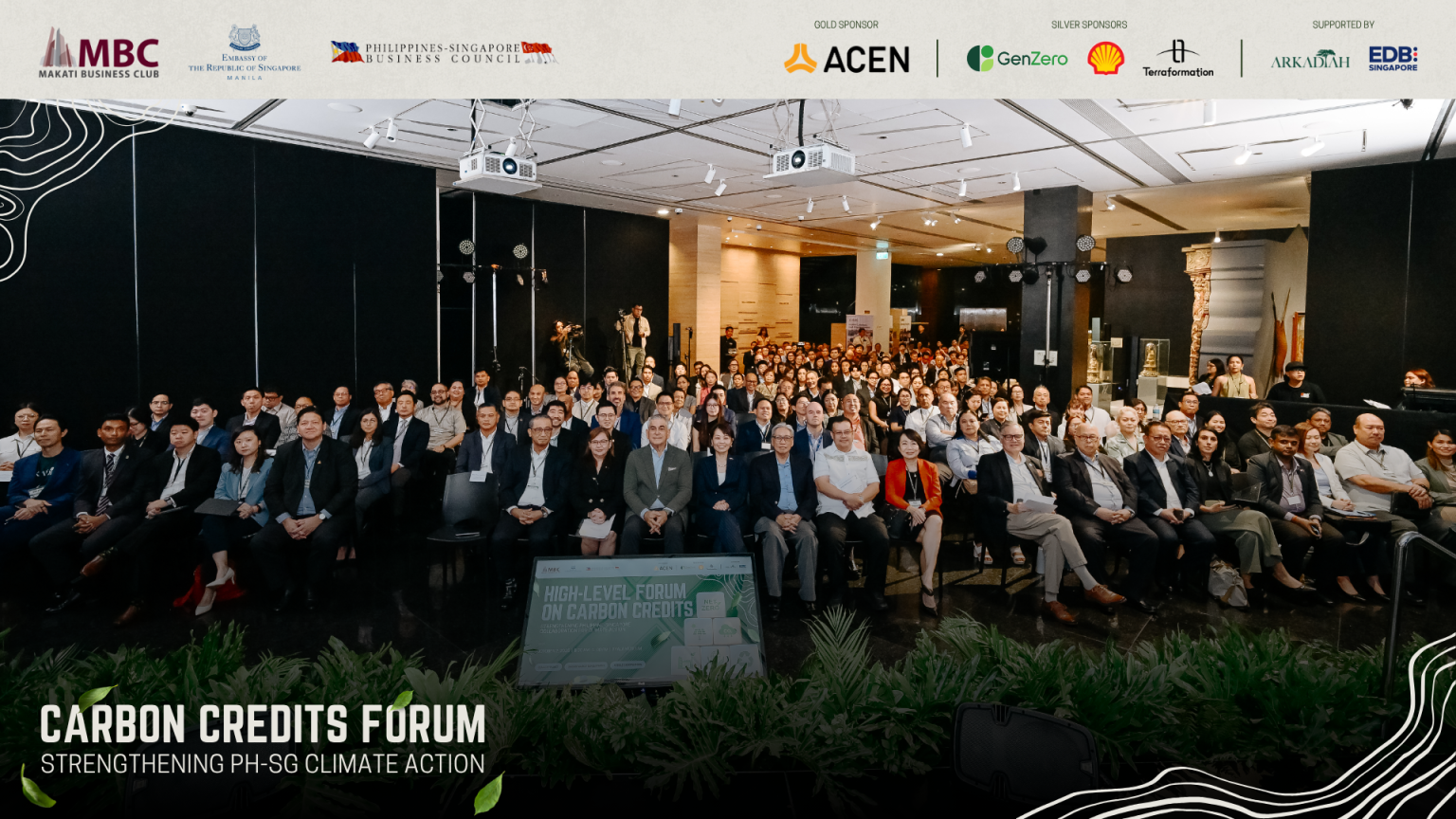Carbon Markets
Once a niche concept, are now central to global climate finance
Climate cooperation, particularly through carbon markets, is an emerging area of collaboration between Singapore and the Philippines.
During the State Visit of Singapore President Tharman Shanmugaratnam to Manila in August 2024, he and President Ferdinand R. Marcos Jr. witnessed the signing of a Memorandum of Understanding (MOU) on carbon credits cooperation, aligned with Article 6 of the Paris Agreement. Building on this momentum, Singapore and the Philippines are currently negotiating an Implementation Agreement, which will establish the framework for the generation and transfer of carbon credits from carbon mitigation projects in the Philippines, aligned with Article 6 of the Paris Agreement, contributing to both nations’ climate goals.
The upcoming High-Level Forum on Carbon Credits: Strengthening Philippine-Singapore Collaboration for Climate Action on October 2, 2025 will explore the current landscape of carbon markets, how local policy in this area is evolving, and where the Philippines–Singapore collaboration under Article 6 of the Paris Agreement fits in.
WHAT ARE CARBON CREDITS
Carbon credits are a way to support and invest in climate solutions. Each credit represents one ton of greenhouse gas that’s been avoided or removed — through projects like forest protection, clean energy, or methane capture. Companies use them to offset emissions they can’t reduce right away. Governments can also trade them under international rules, like Article 6 of the Paris Agreement, to meet their national climate targets more efficiently.
Done right, carbon credits can help channel much-needed funding into projects that deliver real environmental benefits, especially in developing countries.
But they are not a silver bullet. Used wisely, credits can complement ongoing efforts to reduce emissions at source, not replace them. The Philippines and Singapore are working together to shape a carbon market that balances opportunity with credibility, supporting both climate goals and long-term transition pathways.
1 Carbon Credit
=
1 Metric Ton of CO2*
* (or equivalent greenhouse gas) reduced, avoided, or removed from the atmosphere.
CARBON MARKETS IN THE REGION
Governments are laying the groundwork, private sector interest is accelerating, and regional cooperation is starting to take shape. For both public and private sector actors, the opportunity is to help shape a market that is investable, credible, and fit for purpose.

For the Asia-Pacific region, carbon markets are newer and prices remain low, but growth potential is high. This is where the Philippines–Singapore partnership under Article 6 comes in, creating a pathway for investment into Philippine projects while giving Singapore access to high-quality credits.
For business, it is a chance to participate in a market that is growing rapidly worldwide, but to do so with care: credibility, transparency, and alignment with national priorities will define who benefits in the long term.

Singapore is a strong advocate of high-integrity carbon markets and is actively developing bilateral partnerships under Article 6.2. Singapore has signed bilateral Implementation Agreements with Papua New Guinea, Ghana, Bhutan, Peru, Chile, Rwanda, and Paraguay.
Singapore companies have shown early interest in the Philippine carbon market, and the Forum provides a timely platform to convene key stakeholders, take stock of progress and chart a path for deeper and more effectiv collaboration.

Singapore and the Philippines enjoy excellent bilateral relations, underpinned by high-level
engagements, robust economic cooperation and vibrant people-to-people ties.
In 2024, both countries commemorated 55 years of diplomatic relations. Climate cooperation, particularly through carbon markets, is an emerging area of strategic collaboration. During the State Visit of Singapore President Tharman Shanmugaratnam to Manila in August 2024, he and President Ferdinand R. Marcos Jr. witnessed the signing of a Memorandum of Understanding (MOU) on carbon credits cooperation, aligned with Article 6 of the Paris Agreement. The MOU reflected both countries’ shared ambition to harness high integrity carbon markets as a tool for climate action and sustainable development.
Building on this momentum, Singapore and the Philippines are currently negotiating an Implementation Agreement, which will establish the framework for the generation and transfer of carbon credits from carbon mitigation projects in the Philippines, aligned with Article 6 of the Paris Agreement, contributing to both nations’ climate goals.





